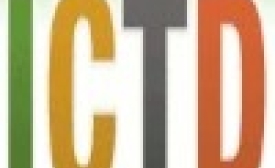technology

Before the WikiLeaks crisis, the State Department began a new initiative called "21st Century Statecraft", which includes a drive to expand openness and combat government censorship in cyberspace. As part of that initiative, the State Department announced on Tuesday that it will host UNESCO's World Press Freedom Day event in 2011, meant to champion the free flow of information on the Internet. The event will be held at the Newseum in Washington from May 1 to 3, and the theme will be "21st Century Media: New Frontiers, New Barriers."
Embattled Russian civil society activists were full of rare praise for Microsoft today, which has stepped in to protect nongovernmental groups (NGOs) and independent journalists who experience official harassment.
Several hundred people attended the première of “The Social Network” at Damascus’s only English-language cinema last month. The crowded theater highlighted the wide use of the film’s subject – Facebook – despite the Syrian government banning the site in 2007. Since then, Facebook’s popularity has surged in Syria.
Some of the first-hand accounts of British Prime Minister David Cameron's visit to China last week did not come in the form of media reports or in postings on news portals, but in a microblog by the British embassy in Beijing, the The Beijing News daily reported Sunday.
Google CEO Eric Schmidt gave insight into the company’s burgeoning international policy on Wednesday night at a meeting at the Council on Foreign Relations (CFR) in New York City. Schmidt, who oversees the company’s technical and business strategy, spoke about the effects of technological democratization in the modern age and some of the challenges Google faces as it drafts its early forays into diplomacy.
The Hindustan Times carried a small news item the other day that, depending on your perspective, is good news or a sign of the apocalypse. It reported that a Nepali telecommunications firm had just started providing third-generation mobile network service, or 3G, at the summit of Mount Everest, the world’s tallest mountain, to “allow thousands of climbers and trekkers who throng the region every year access to high-speed Internet and video calls using their mobile phones.”
U.S. Embassy Kabul has awarded USD 3.1 million to support NATO's "SILK-Afghanistan" program, which provides high-speed Internet access to more than 9,000 students and teachers at Afghan universities in seven provinces (Baghlan, Faryab, Ghazni, Helmand, Kunduz, Paktia and Parvan).







